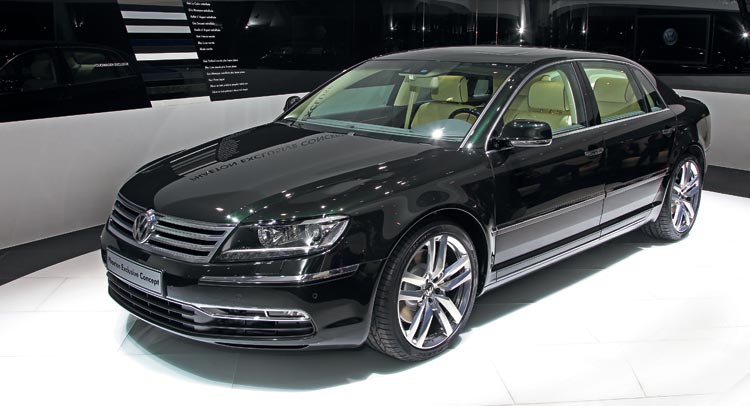VW’s stubbornness to develop a new generation Phaeton luxury sedan is in stark contrast with the automaker’s recently announced cost-cutting measures. VW announced it targets annual cost savings of €5 billion ($5.67 billion) at its passenger-car brand by 2017.
While the VW Phaeton’s longevity can be explained by the fact that it is a pet project of VW Chairman Ferdinand Piech, the luxury sedan isn’t backed by sales performance at all. The Phaeton has never met VW’s original sales target of 20,000 cars a year and has been a money-losing car right from its launch in 2002. VW spent more than €1 billion ($1.13 billion) to develop the Phaeton.
In this context, industry experts are baffled why VW insists to pour millions of euros to upgrade the Phaeton, described by Bernstein analyst Max Warburton as one of the three “most loss-making European cars of modern times.” The analyst estimated that VW lost €28,000 ($31,715) on each Phaeton sold between 2002 and 2012.
Nevertheless, sources from within the company told Reuters that the automaker’s plans for a more advanced version of the Phaeton remain unchanged. Analysts estimate that switching production of the Phaeton to VW’s modular MLB platform alone could cost as much as €650 million ($737 million).
Sources also said VW aims to pit the next-generation Phaeton against the Mercedes-Benz S-Class, with the car expected to arrive in dealerships (including the United States) in 2017 or 2018. VW will also offer a plug-in hybrid version.
VW confirmed plans for a Phaeton successor, but didn’t comment on the details or costs, only saying that the sedan will help show off its technical prowess. VW only produced 5,812 Phaetons in 2013, with sales reaching 6,300 units.













